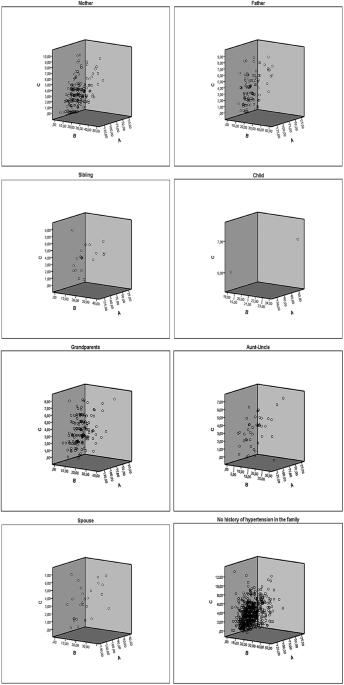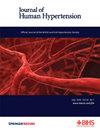The effect of health anxiety on attitudes toward disease prevention in individuals with and without a family history of hypertension
IF 3.4
4区 医学
Q2 PERIPHERAL VASCULAR DISEASE
引用次数: 0
Abstract
This study aims to examine how health anxiety and demographic characteristics influence attitudes toward hypertension prevention in individuals with and without a family history of hypertension (family HHT). This cross-sectional study included 1,139 individuals over the age of 18. Data were collected through an online survey and analyzed using the Attitudes Scale Towards Prevention of HT (ASPH) and the Health Anxiety Scale (HAS). In addition to scale scores, demographic characteristics and family history of hypertension were also collected. The survey link was shared via social media, allowing participants to distribute it within their networks. The mean ASPH score was 98.31 ± 21.91, highest in prevention and control (31.55 ± 7.28). Age correlated with mental and physical activity (p = 0.026) and nutritional behavior (p = 0.041), while BMI was linked to hypertension attitudes (p = 0.006). Regression analysis showed that gender (B = −6.609, p < 0.001) and a family HHT (B = −0.574, p = 0.013) significantly influenced attitudes toward hypertension prevention, with men and those with a family HHT scoring lower than their counterparts. Scatter plots revealed higher health anxiety and stronger hypertension attitudes in those with hypertensive parents, while attitudes were more varied among individuals with hypertensive siblings or grandparents. These findings highlight the impact of family hypertension history and demographics on hypertension attitudes and health anxiety, emphasizing early awareness, targeted health education for gender differences, and preventive strategies for high-risk groups.

健康焦虑对有和无高血压家族史个体疾病预防态度的影响
本研究旨在探讨健康焦虑和人口统计学特征如何影响有和无高血压家族史的个体(家族HHT)对高血压预防的态度。这项横断面研究包括1139名18岁以上的人。数据通过在线调查收集,并使用对HT预防态度量表(ASPH)和健康焦虑量表(HAS)进行分析。除量表得分外,还收集了人口统计学特征和高血压家族史。调查链接通过社交媒体分享,允许参与者在他们的网络中分发。ASPH平均评分为98.31±21.91分,预防和控制评分最高,为31.55±7.28分。年龄与心理和身体活动(p = 0.026)以及营养行为(p = 0.041)相关,而BMI与高血压态度相关(p = 0.006)。回归分析显示,性别差异(B = -6.609, p
本文章由计算机程序翻译,如有差异,请以英文原文为准。
求助全文
约1分钟内获得全文
求助全文
来源期刊

Journal of Human Hypertension
医学-外周血管病
CiteScore
5.20
自引率
3.70%
发文量
126
审稿时长
6-12 weeks
期刊介绍:
Journal of Human Hypertension is published monthly and is of interest to health care professionals who deal with hypertension (specialists, internists, primary care physicians) and public health workers. We believe that our patients benefit from robust scientific data that are based on well conducted clinical trials. We also believe that basic sciences are the foundations on which we build our knowledge of clinical conditions and their management. Towards this end, although we are primarily a clinical based journal, we also welcome suitable basic sciences studies that promote our understanding of human hypertension.
The journal aims to perform the dual role of increasing knowledge in the field of high blood pressure as well as improving the standard of care of patients. The editors will consider for publication all suitable papers dealing directly or indirectly with clinical aspects of hypertension, including but not limited to epidemiology, pathophysiology, therapeutics and basic sciences involving human subjects or tissues. We also consider papers from all specialties such as ophthalmology, cardiology, nephrology, obstetrics and stroke medicine that deal with the various aspects of hypertension and its complications.
 求助内容:
求助内容: 应助结果提醒方式:
应助结果提醒方式:


